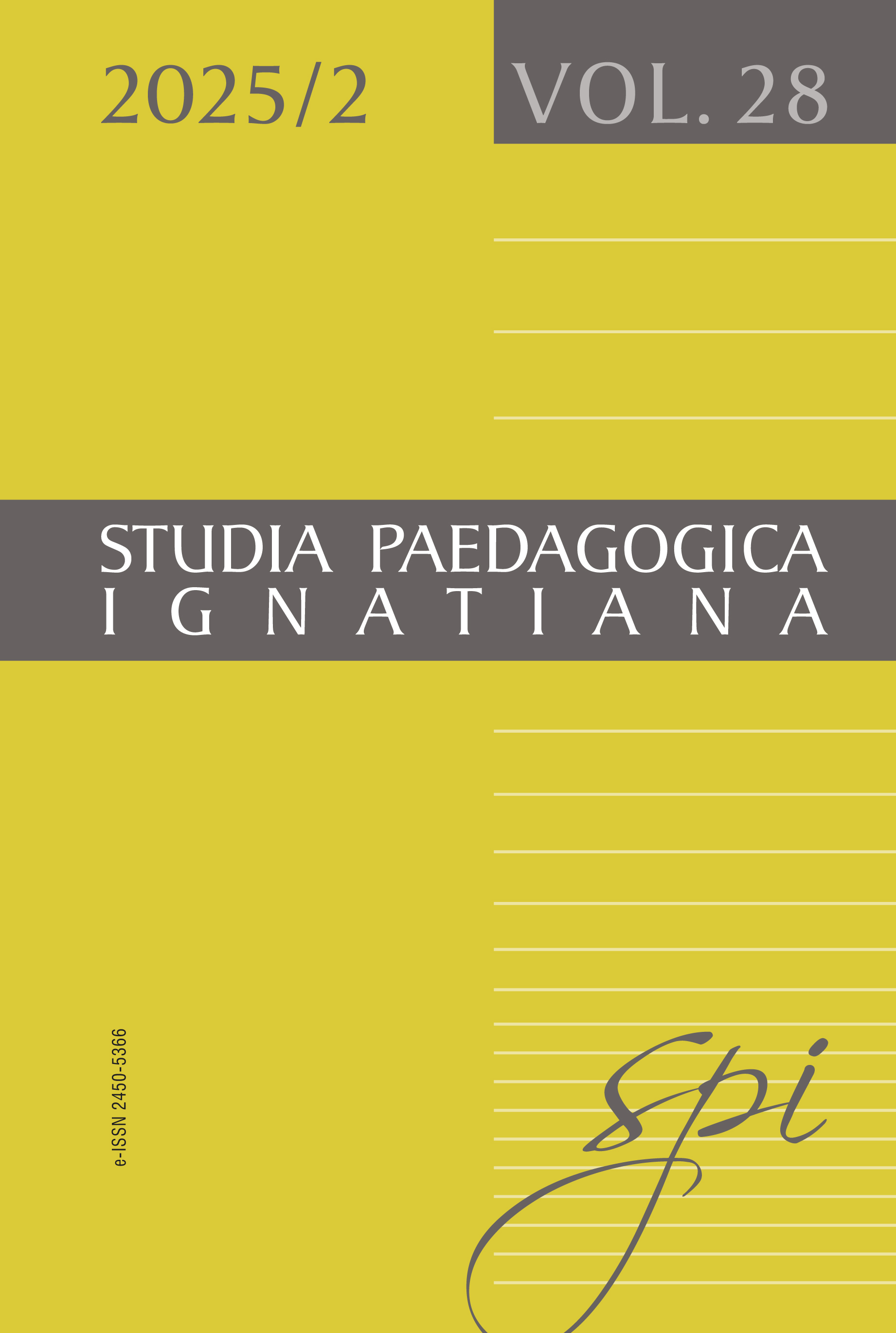Education in Light of the Documents of the Second Vatican Council
DOI:
https://doi.org/10.12775/SPI.2025.2.001Keywords
Second Vatican Council, education, personalistic pedagogy, integral human developmentAbstract
Over the centuries, the Church has carried out its educational mission in various ways and in cooperation with many different communities. It has devoted much attention to the practice and theory of education, which, on the one hand, it has built on the values of the Gospel and the dogmatic foundations of Christian education, and on the other hand, the changing realities of society and culture. In the educational thought of the Church, one can clearly see an evolution in the very definition of education, its goals and proposed methods and means, and the understanding of the subjects and contexts of education. In this article, an attempt will be made to present education as articulated in the teachings of the Second Vatican Council. The renewed concept of education developed at the Second Vatican Council, based on pedagogical personalism anchored in Christian anthropology, is the starting point for a pedagogical reflection of the Church after the Second Vatican Council.
References
Pismo Święte i dokumenty Kościoła
Pismo Święte Starego i Nowego Testamentu. Biblia Tysiąclecia, Pallottinum, Poznań 2003.
Sobór Watykański II, Konstytucje, Dekrety, Deklaracje, wyd. 3, Pallottinum, Poznań 1968.
Literatura przedmiotu i opracowania
Chałas K. (2019). Godność człowieka źródłem rozszerzającego się horyzontu aksjologicznego, [w:] M. Czarnecka, S. Dziekoński, A. Gralczyk, J. Michalski (red.), Wartość – Człowiek – Wychowanie. Aksjologia w europejskich systemach edukacyjnych, Warszawa: Wydawnictwo Uniwersytetu Kardynała Stefana Wyszyńskiego, s. 203–220.
Chałas K., Dziekoński S., Starnawski W. (2021). Dydaktyka akademicka w uniwersytecie katolickim, t. 2: Prawda w kształceniu przyszłych nauczycieli, Kraków: Wydawnictwo „Scriptum”.
Dziekoński S. (2004). Rozwój wychowawczej myśli Kościoła na przestrzeni ostatnich wieków, Warszawa: Wydawnictwo Uniwersytetu Kardynała Stefana Wyszyńskiego.
Dziekoński S. (2013). Wychowanie we współczesnej szkole katolickiej, Warszawa: Wydawnictwo Uniwersytetu Kardynała Stefana Wyszyńskiego.
Dziekoński S. (2021). Godność osoby ludzkiej w teorii i praktyce wychowania w ujęciu Prymasa Stefana Wyszyńskiego, [w:] R. Czekalski (red.), Kardynał Stefan Wyszyński. Droga życia i posługi pasterskiej, Warszawa: Wydawnictwo Naukowe Uniwersytetu Kardynała Stefana Wyszyńskiego, s. 511–520.
Filipiak M., Rumiński S. (1977). Biblijno-teologiczne ujęcie problematyki antropologicznej, [w:] A. Hartliński, B. Walczak (red.), Chrześcijańska wizja człowieka, Poznań: Księgarnia św. Wojciecha, s. 65–111.
Kowalczyk S. (1980). Podstawy światopoglądu chrześcijańskiego, Warszawa: Ośrodek Dokumentacji i Studiów Społecznych.
Kunowski S. (1968). Podstawowe zasady wychowania w Deklaracji, „Ateneum Kapłańskie”, t. 60, nr 359, s. 414–424.
Lemonnier M. (1981). Storia della Chiesa, Vincenza: Istituto San Gaetano.
Majewski M. (1980). Ewolucja odnowy wychowania religijnego, „Roczniki Teologiczno-Kanoniczne”, t. 27, nr 6, s. 31–41.
Sinistrero V. (1970). Il Vaticano II e l’educazione, Torino-Leuman: Elle Di Ci.
Starnawski W. (2011). Bycie osobą. Podstawy moralności i wychowania, Warszawa: Wydawnictwo Uniwersytetu Kardynała Stefana Wyszyńskiego.
Stępień K. (2016). Godność osobowa, [w:] K. Chałas, A. Maj (red.), Encyklopedia aksjologii pedagogicznej, Radom: Polskie Wydawnictwo Encyklopedyczne Polwen, s. 377–378.
Viotto P. (1966). Pedagogia generale, wyd. 5, Torino: Marietti.
Wojtyła K. (1968). Wstęp ogólny, [w:] Sobór Watykański II, Konstytucje, Dekrety, Deklaracje, wyd. 3, Poznań: Pallottinum, s. 9–23.
Downloads
Published
How to Cite
Issue
Section
License
Copyright (c) 2025 ks. prof. dr hab. Stanisław Dziekoński

This work is licensed under a Creative Commons Attribution-NoDerivatives 4.0 International License.
By submitting an article, the author declares that:
they are the author of the article (hereinafter referred to as the Work) and:
- is entitled to exclusive and unlimited copyright to the Work,
- is entitled to dispose of the copyrights to the Work.
The Author grants the Jesuit University Ignatianum in Cracow a free, non-exclusive, territorially unlimited license to use the Work in the following fields of exploitation:
- publishing the Work in paper, digital or magnetic form;
- multiplying the work by any method, without limiting the number of editions or copies;
- distribution of the work and its copies in any form, including marketing, sales, lending, and lease;
- placing the work in a computer memory;
- distribution of the work in information networks, including the Internet;
- public performance, exhibition, display, reproduction, broadcasting and re-broadcasting, as well as making the Work available to the public in such a manner that everyone could have access to it at a time and place chosen by themselves;
- within the scope of dependent rights to the Work, covering, in particular, the right to make necessary changes to the Work, resulting from editorial and methodical preparation, as well as to make translations of the Work into other languages.
The license right shall be transferred the moment of transfer of the Work to the Jesuit University Ignatianum in Cracow. The Jesuit University Ignatianum in Cracow is entitled to grant sub-licenses to the Work in terms of the right granted. The license shall be limited in time for a period of 15 years from the date it is granted.
Stats
Number of views and downloads: 106
Number of citations: 0



